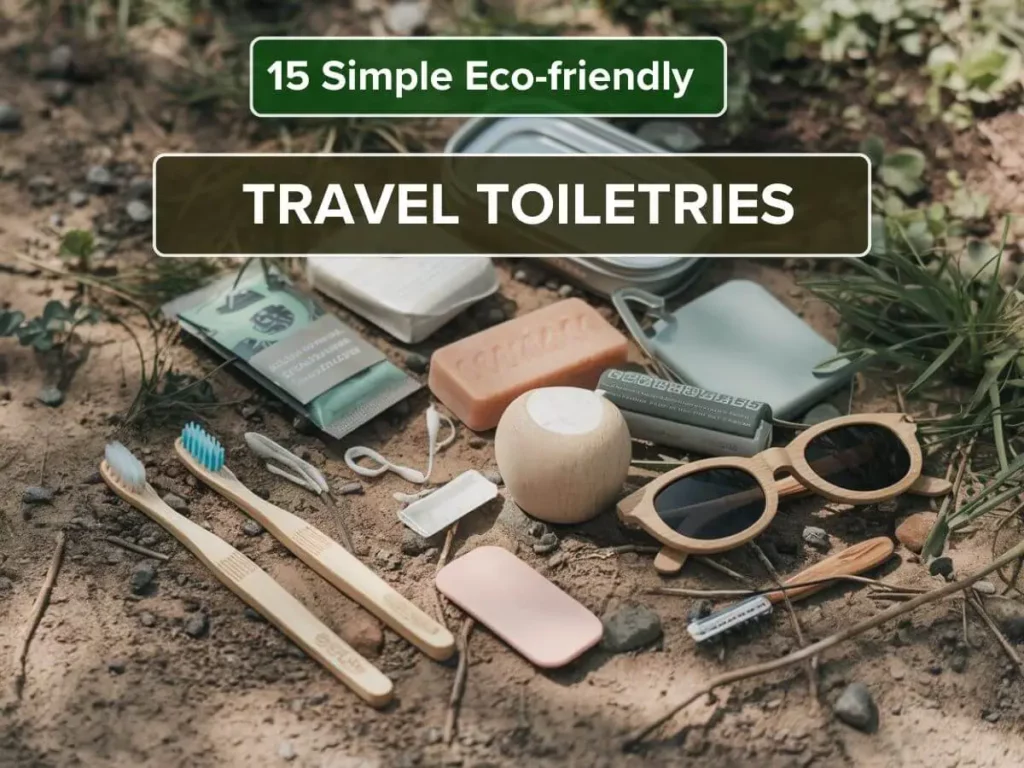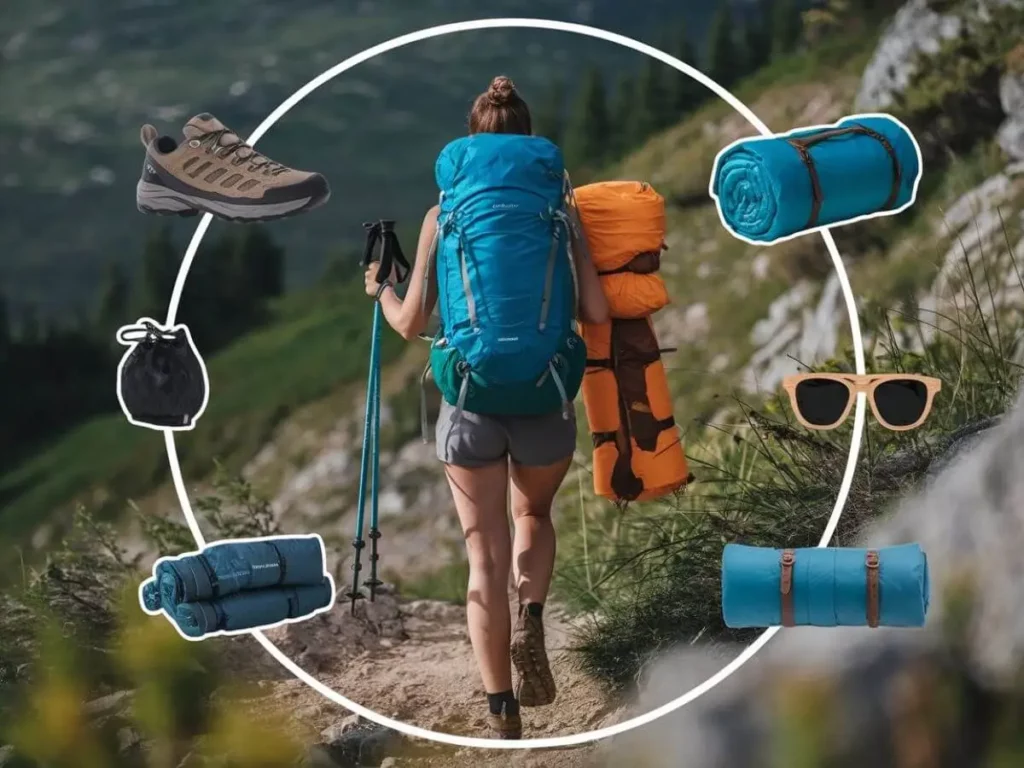(Disclaimer:This post may contain affiliate links which means I may receive a commission for purchases made through links. I will only recommend products that I genuinely believe in) Learn more.
Camping in the great outdoors has always been one of my favorite ways to connect with nature.
Living in New Jersey, with many beautiful campsites within a short driving distance such as around here in the Catskills or on down along part of The Appalachian Trail.
But as much as I love to camp, I love preserving the environment too. I mean, in the end, why would you wanna enjoy nature if we’re not ready to protect it same time?
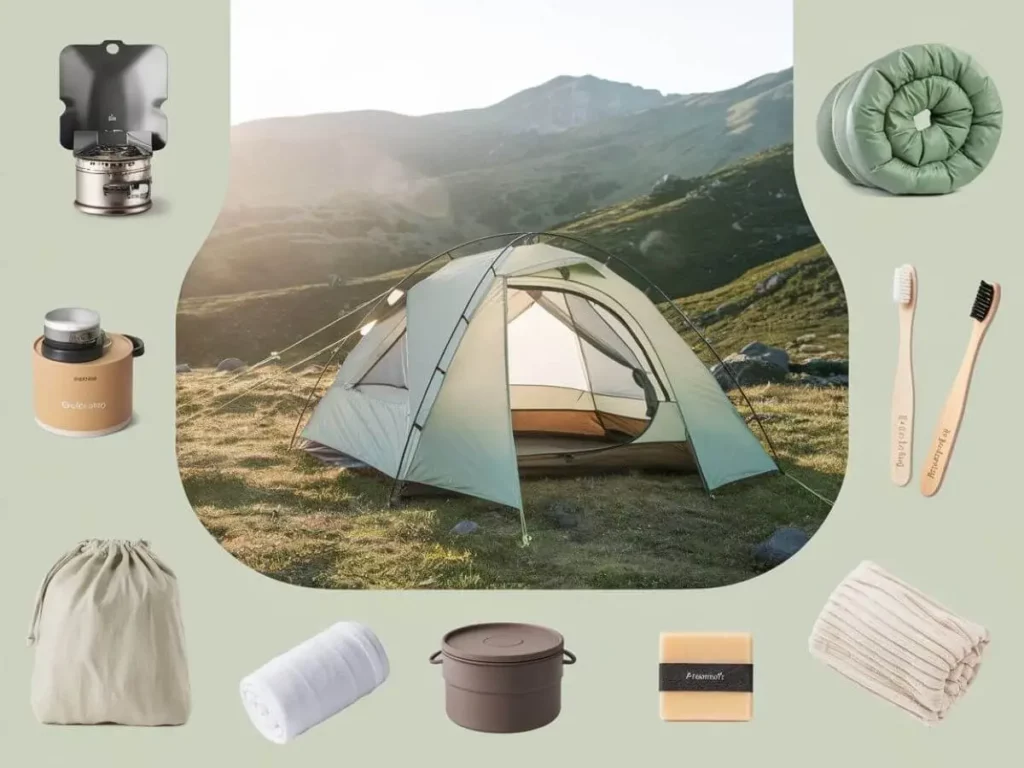
This is why I have become a little more eco-conscious in my camping practices and I’m excited to share these eco-friendly tips with you here.
If you are new to camping, or even an experienced camper, these practices will help to minimize human impact on our nature. Let’s dive in!
1. Choose Eco-Friendly Destinations
Choose your destination — in advance, think about where you’re going.
Throughout the USA, many campsites are beginning to tout their sustainability credentials — from recycling stations and solar-run facilities to Leave No Trace guidelines for visitors.
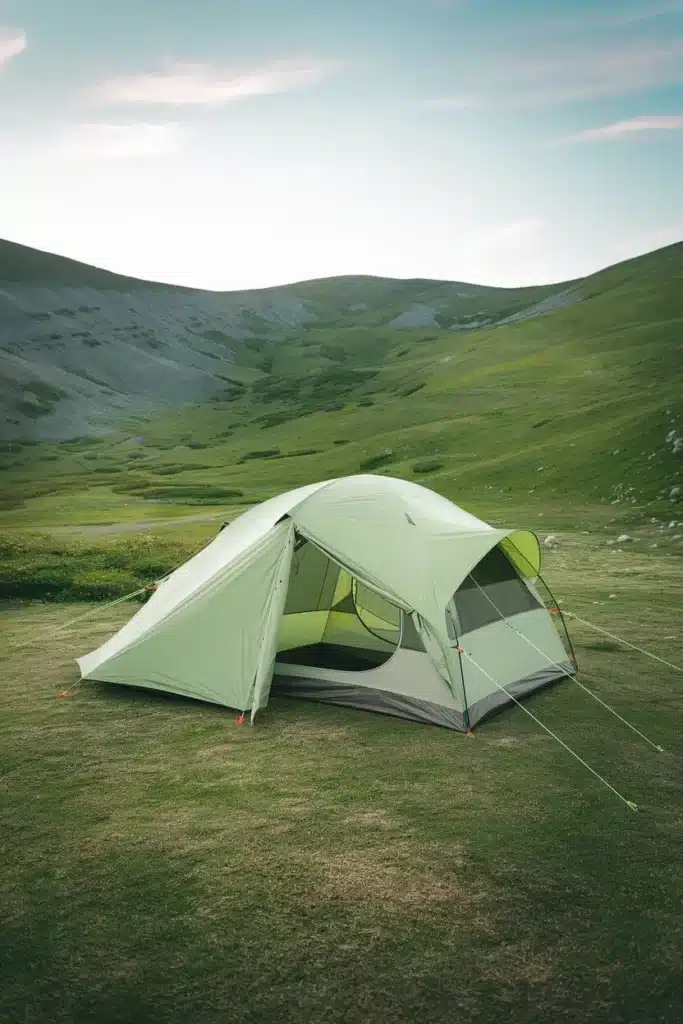
When my cousin Tina and I went backpacking in Asia last year, we chose to go places where the parks were geared towards conservation. Same here, find campgrounds that promote eco-friendly ideas.
And remember how you are getting there! Instead choose carpooling, public transportation or camping close to home which will definitely reduce your carbon footprint.
If you are camping in New Jersey, for example, there are many beautiful areas not far from the state lines to explore.
2. Sustainable Gear Choices
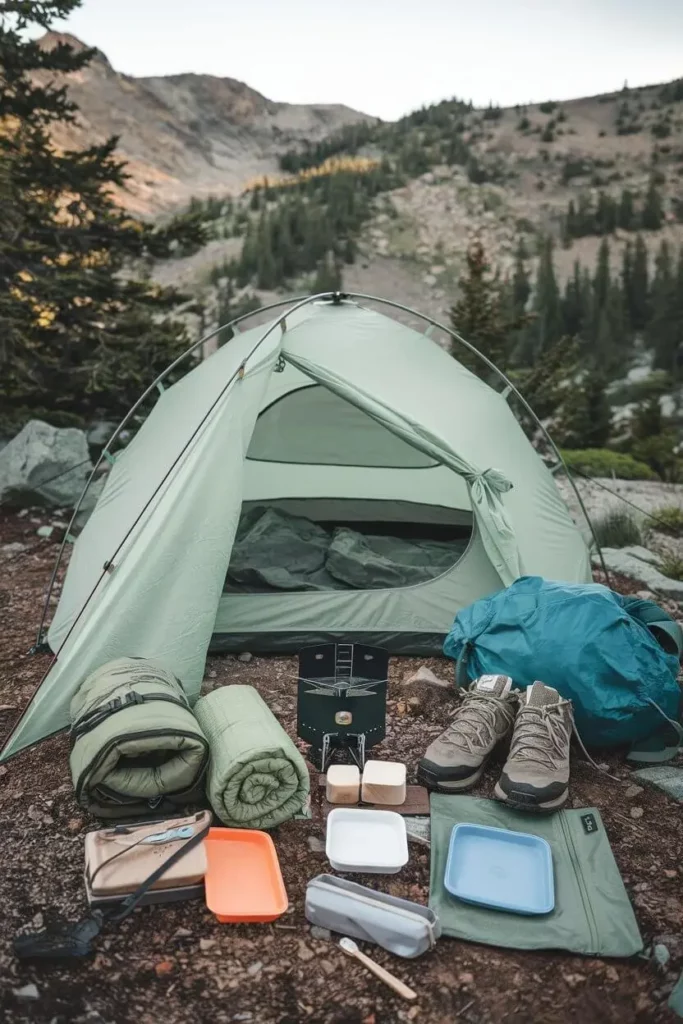
Green Your Camping, use eco-friendly gear. One of your best opportunities to make a smaller eco-footprint on your camping trips — whether you go for the weekend, week, or month.
I mostly use long-lasting, reusable, and biodegradable (where it is possible) gear. And this includes not using single-use plastic; be it disposable cutlery, plates, or water bottles.
I pack everything in reusable containers, beeswax paper, and silicone bags. keep my food fresh without generating unnecessary waste.
In terms of gear, I splashed out on a tent that has been made using sustainable materials and a sustainable sleeping bag that’s insulated with ethically sourced down.
If you want to buy green camping equipment, there are quite a few places like REI, Tentree, or Patagonia that sell this eco-friendly gear.
From sustainable sleeping pads to biofuel camp stoves, they pretty much offer everything you need for eco-friendly camping using renewable energy sources.
3. Sustainable Food Practices While Camping
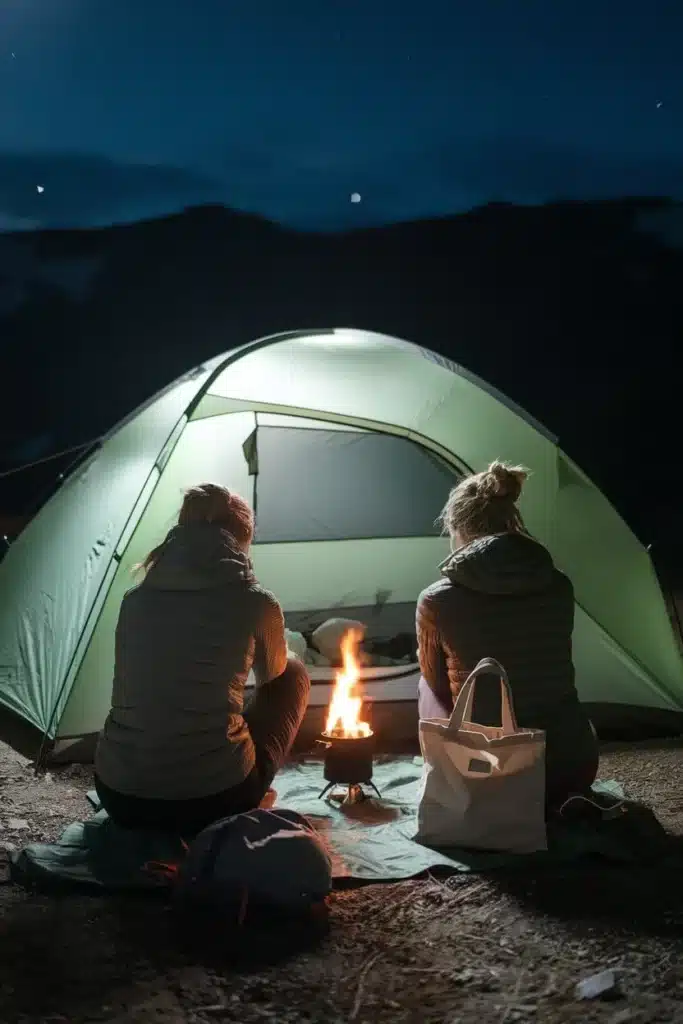
The most significant form of environmental harm on a camping trip is resulting from food waste. A zero-waste meal plan Another way I prevent this is by planning a zero-waste meal plan.
I pack food in reusable containers and bring bulk items like nuts, oats, and dried fruits. This increases the reduces the packaging and keeps things simple.
Silicone bags are great for this and you can keep reusing them over and over.
Another tip is to cook sustainably. By using an eco-friendly camping stove, a tiny amount of deforestation is avoided and leaves a lasting impact on the ground, I prefer using an eco-friendly camping stove.
These stoves are more efficient, use less fuel, and have a smaller environmental footprint. For renewable power stoves like these, check out stores such as Biolite or GSI Outdoors.
4. Leave No Trace — Camping Courtesy!
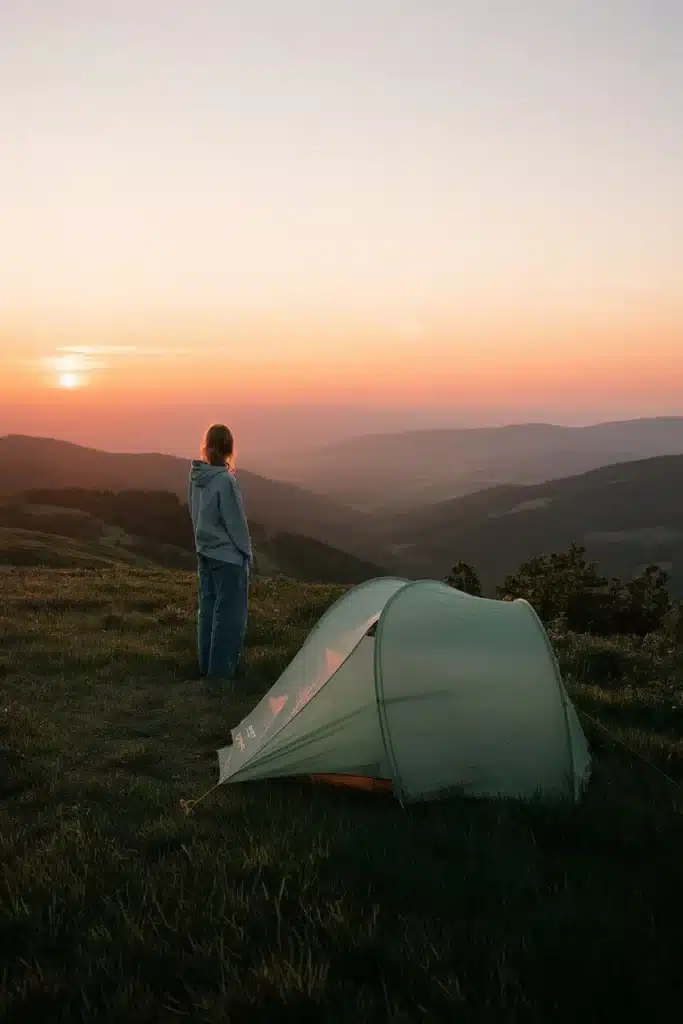
The single most important thing to remember before camping is the golden rule: adhere to the ‘Leave No Trace’ principles.
This involves also packing out all you pack in, being wildlife conscious, and showing respect for the natural habitat. On a New Jersey camping trip, I also witnessed people litter.
I watched some guy dump all of his plastic water bottles and food wrappers on the ground as he was leaving. Such a shame and of course I made sure to pick them up and pack them out.
Another critical aspect is how you dispose of human waste when camping in more remote locations. Make sure to bury waste at least 6-8 inches deep and 200 feet away from any water source.
On the other hand, you could use camping-specific portable toilets that will provide an easier cleanup and they are also more environmentally friendly.
Building proper campfires is also important. Use designated campfire pits, and avoid cutting live wood for kindling. Always make sure your fire is completely out before leaving your site.
5. Water Conservation Techniques at Campsites
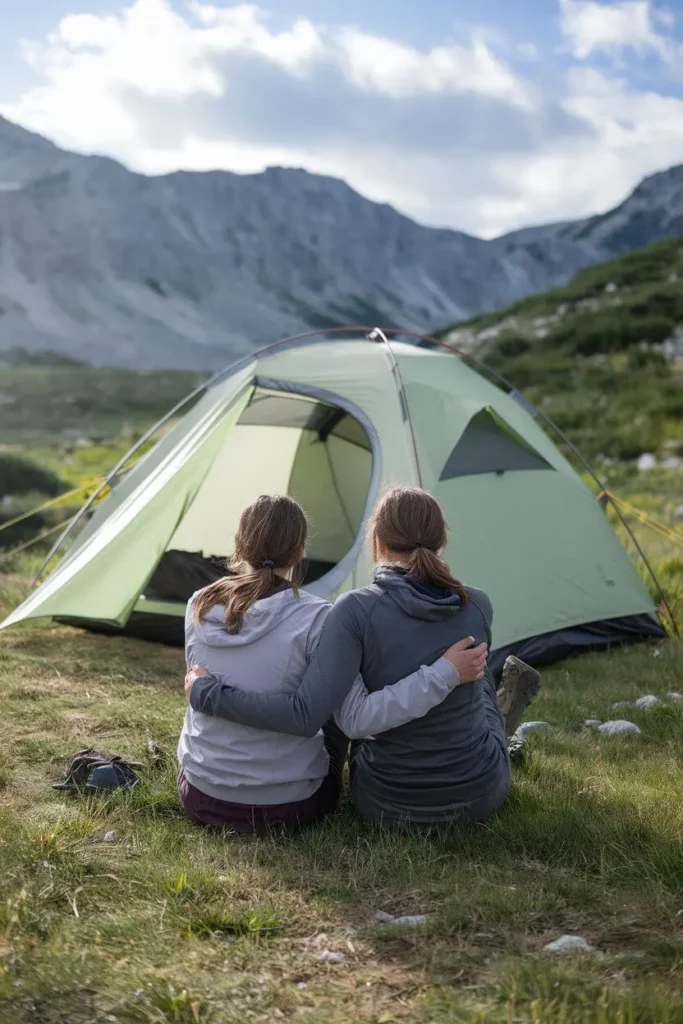
If you camp near natural water sources like streams or lakes, then being careful about conserving the use of water is essential.
Use biodegradable soap and keep your water use to a minimum. When I camp, I always bring a portable water filtration system so I don’t have to rely on bottled water.
This is a great way to avoid unnecessary plastic waste while staying hydrated.
Be sure to establish your camp at a minimum of 200 feet from any water sources. That way you are not leaving behind contamination and the ecosystems stay preserved for others to use.
6. Sustainable Camping with Kids and Pets
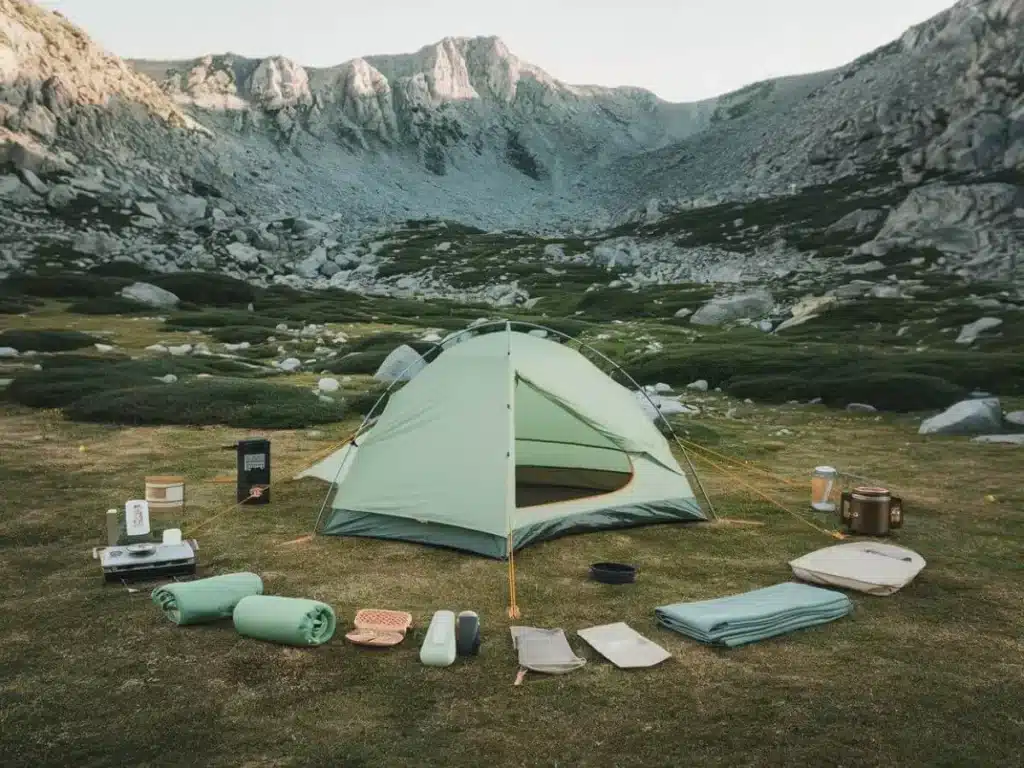
Historically, I struggle to keep the kids in mind while we scratch out our time outside.
If you’re camping with kids or pets, it’s even more important to practice sustainability. Teach your children to respect nature by picking up trash or engaging in eco-friendly activities like bird watching or nature scavenger hunts.
I don’t have kids myself, but I’ve gone camping with my niece and nephew — they learn so quickly that good intentions count as fun endeavors too.
Ensure dog waste is removed with eco-friendly pet bags after your picnic and never leave any traces of their presence behind.
7. Eco-Friendly Hygiene Products for Camping
You do not need to compromise on sustainability while keeping hygiene in check during your camping. Bamboo toothbrushes, natural toothpaste, and biodegradable wipes are all more sustainable hygiene products.
I always opt for a compostable toothbrush and bring along a multi-purpose biodegradable soap that’s safe for the environment.
Stores like Public Goods, Dr. Bronner’s, or even Whole Foods, offer various natural and low-impact options.
8. Off-Grid Camping: Minimizing Your Impact
If you prefer camping in more remote, off-grid locations, it’s even more essential to practice **low-impact camping**. When Tina and I went backpacking in Asia, we camped in some pretty isolated areas.
The key was to leave the campsite exactly as we found it, if not better. We used a solar-powered charger to keep our gadgets running and took extra care with waste disposal.
Even when you’re far from the beaten path, it’s important to stay mindful of your environmental impact.
9. Respect Wildlife
While camping, it’s easy to feel like you’re a part of nature, but it’s important to remember that we’re visitors. Respect wildlife by keeping your distance ( there are some great zoom lenses) and never feed animals.
Last summer on a camping trip, we had an entire family of deer that just came wandering into our campsite.
It was tempting to get closer for pictures, but respecting their space ensures they don’t get too comfortable with humans and maintains the balance of the ecosystem.
10. Community Camping: How to Inspire Sustainable Practices
After all, sustainable camping is not limited by what you do things on your own- it’s about encouraging others too. I love offering my fellow campers green advice, in the group sites or on forums.
At times I will coordinate a clean-up day at the campsites, especially in those popular areas where there is enough scattering of trash.
It is so rewarding when more and more campers begin to take part, which helps make going green a communal experience.
Sustainable camping is not just about less waste, it is also about maintaining the natural beauty of these places which we all love for generations.
Whether you are planning a short weekend trip or an extended camping vacation, integrating sustainable camping practices into your lifestyle not only helps make the experience more enjoyable for you but is also friendlier to Mother Nature.
Next time you’re heading out, pack wisely, plan ahead, and always leave nature better than you found it. After all, every little bit counts when it comes to protecting our planet.
And now that you are prepared, which eco-friendly camping trip will be your next and when? Let’s make sustainable camping the new norm—because nature deserves it!


